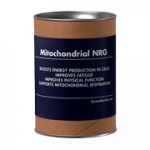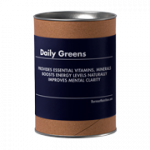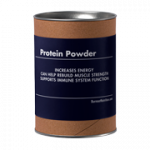Cortisol is a hormone that plays a key role in the body’s stress response, immune function, and sleep-wake cycles. In chronic fatigue syndrome/myalgic encephalomyelitis (CFS/ME), cortisol levels are often abnormal, contributing to fatigue, brain fog, and sleep issues. Here are 10 ways to help balance cortisol levels and find relief from CFS/ME symptoms:
- Eat a whole-food, plant-based diet rich in antioxidants to lower cortisol and inflammation.
- Incorporate omega-3 fatty acids from fish or supplements to reduce cortisol by up to 19%.
- Add probiotics like those found in yogurt, kefir, and fermented foods to lower cortisol concentrations.
- Reduce caffeine intake to prevent chronically high cortisol levels.
- Practice deep breathing exercises to activate the relaxation response and decrease cortisol production.
- Ensure adequate sleep to maintain a healthy cortisol rhythm.
- Engage in regular, moderate exercise like brisk walking or cycling to lower cortisol levels.
- Take supplements like ashwagandha, omega-3s, rhodiola, magnesium, and vitamin C to target cortisol regulation.
- Spend time in nature for 20-30 minutes to significantly reduce cortisol levels.
- Practice mindfulness and meditation to lower cortisol and promote relaxation.
| Approach | Potential Benefits | Potential Drawbacks |
|---|---|---|
| Dietary Changes | Natural approach, addresses root causes, provides other health benefits | Results may take time, requires lifestyle changes, individual responses vary |
| Breathing Exercises | Simple, free, can do anywhere, provides quick stress relief | Requires consistent practice, may not address underlying issues, benefits are temporary |
| Exercise | Boosts mood, energy, and sleep, builds overall fitness | Intense exercise can temporarily raise cortisol, requires time and effort, risk of injury if overdone |
| Sleep | Allows body to rest and reset, supports hormone balance, improves overall well-being | Sleep quality can be affected by stress, establishing good habits takes time, individual sleep needs vary |
| Mindfulness | Reduces stress and anxiety, promotes emotional balance, enhances self-awareness | Requires consistent practice, benefits may not be immediate, individual responses vary |
| Supplements | Targeted support for cortisol levels, convenient and easy to incorporate | Quality and dosage are crucial, potential interactions with medications, long-term effects are unclear |
Consistency and patience are key when addressing cortisol imbalances. A well-rounded approach combining dietary changes, lifestyle adjustments, and targeted supplementation can help restore balance and ease CFS/ME symptoms.
Related video from YouTube
1. Eat a Whole-Food, Plant-Based Diet
Lowers Cortisol Levels
A whole-food, plant-based diet rich in fruits, veggies, whole grains, legumes, nuts, and seeds can effectively reduce cortisol levels. These foods provide antioxidants like vitamin C, E, and phytonutrients that lower oxidative stress and inflammation, contributing to lower cortisol.
Additional Benefits
| Benefit | Description |
|---|---|
| Gut Health | Improved gut health and nutrient absorption from plant foods. |
| Antioxidants & Fiber | Increased intake of antioxidants, fiber, and beneficial compounds. |
| Disease Prevention | Lower risk of chronic diseases like obesity, heart disease, and diabetes. |
Easy to Implement
Incorporating more plant-based foods is simple and affordable:
- Excellent protein sources: beans, lentils, tofu, nut butters
- Nutrient-rich options: bananas, berries, greens, cruciferous veggies
Cortisol-Lowering Power
Plant-based diets are especially effective for reducing cortisol due to their high antioxidant content from foods like berries, nuts, seeds, and leafy greens. These nutrients lower inflammation and oxidative stress, thereby lowering cortisol.
Overall Health Boost
The high-antioxidant, high-fiber nature of a plant-based diet is optimal for reducing cortisol, oxidative stress, and improving overall health. These diets have been linked to lower risks of obesity, heart disease, diabetes, and other chronic conditions.
2. Incorporate Omega-3 Fatty Acids

Omega-3s Help Lower Cortisol
Studies show that omega-3 fatty acids, especially EPA (eicosapentaenoic acid) and DHA (docosahexaenoic acid), can reduce cortisol levels and improve stress resilience. Supplementing with omega-3s has been linked to lower overall cortisol and decreased inflammation during stressful events.
One study found that a high omega-3 dose lowered cortisol by 19% and reduced an inflammatory protein by 33% during stress, compared to a placebo. Another study showed omega-3s prevented a decrease in telomerase (an anti-aging enzyme) and an anti-inflammatory protein after acute stress, allowing for normal cell repair.
Easy to Add to Your Diet
Getting more omega-3s is simple. Eat fatty fish like salmon, tuna, and sardines at least twice a week. Or, take a high-quality fish oil supplement that provides concentrated EPA and DHA. Follow the dosage instructions on the label.
| Fish Source | Omega-3 Content |
|---|---|
| Salmon | High in EPA and DHA |
| Tuna | Moderate EPA and DHA |
| Sardines | High in EPA and DHA |
Other Health Perks
In addition to lowering cortisol, omega-3s offer these benefits:
- Reduced inflammation
- Improved heart health
- Better brain function and mental health
- Decreased risk of chronic diseases like cancer and Alzheimer’s
3. Add Probiotics to Your Diet
Probiotics Can Help Lower Cortisol
Studies show that probiotics, like Lactobacillus plantarum, may reduce cortisol levels and minimize the negative effects of chronic stress. These beneficial bacteria can help lower cortisol concentrations and prevent issues like memory problems and lack of focus caused by high stress.
Easy Ways to Get Probiotics
Getting more probiotics in your diet is simple:
- Eat fermented foods like yogurt, kefir, sauerkraut, and kimchi. These are packed with probiotics.
- Take a high-quality probiotic supplement to ensure you get enough beneficial bacteria.
Other Probiotic Perks
In addition to regulating cortisol, probiotics offer these advantages:
| Benefit | Description |
|---|---|
| Gut Health | Improved digestion and nutrient absorption |
| Immunity | Boosted immune function |
| Inflammation | Reduced inflammation in the body |
| Weight | Potential support for weight management |
4. Reduce Caffeine Intake
How It Helps Lower Cortisol
Caffeine is a stimulant that triggers the release of cortisol, the body’s main stress hormone. While a moderate amount may provide an energy boost, excessive caffeine can lead to chronically high cortisol levels. This can worsen chronic fatigue syndrome (CFS/ME) symptoms like fatigue, brain fog, and sleep issues.
By reducing or eliminating caffeine, individuals with CFS/ME may help regulate their cortisol levels and potentially ease symptoms.
Simple Ways to Cut Back
Reducing caffeine can be challenging if you’re used to it. However, with a gradual approach and the right strategies, it’s achievable:
- Slowly decrease your daily caffeine over several weeks to minimize withdrawal effects.
- Replace caffeinated drinks with herbal teas, decaf coffee, or water.
- Identify and avoid hidden caffeine sources, such as certain medications and chocolate.
- Eat whole foods and stay hydrated to support energy levels.
Additional Benefits
Besides regulating cortisol, reducing caffeine can provide:
- Improved sleep quality
- Reduced anxiety and jitters
- Lower risk of digestive issues
- Decreased risk of headaches and migraines
- Potential support for weight management
5. Practice Deep Breathing Exercises
Lowers Cortisol Levels
Deep breathing exercises have been proven to lower cortisol, the body’s main stress hormone. When you practice controlled breathing, it activates the parasympathetic nervous system, which counteracts the "fight-or-flight" response and promotes relaxation. Research shows that regular deep breathing can significantly decrease cortisol production.
Easy to Do Anywhere
Deep breathing exercises are simple and convenient. You can do them anywhere without any special equipment. They are easy to learn and incorporate into your daily routine. Popular techniques like 4-7-8 breathing, belly breathing, and alternate nostril breathing only take a few minutes to practice.
Additional Benefits
Besides lowering cortisol, deep breathing offers these advantages:
| Benefit | Description |
|---|---|
| Oxygen & Lung Function | Improved oxygen circulation and lung function |
| Mental Health | Reduced anxiety and depression symptoms |
| Focus & Concentration | Enhanced focus and concentration |
| Sleep Quality | Better sleep quality |
| Blood Pressure & Heart Rate | Lowered blood pressure and heart rate |
| Energy Levels | Increased energy levels |
6. Ensure Adequate Sleep
Helps Lower Cortisol
Getting enough quality sleep is key to regulating cortisol, the body’s main stress hormone. Lack of sleep disrupts the natural cortisol cycle, leading to high levels throughout the day and night. Proper sleep helps maintain a healthy cortisol rhythm, allowing levels to peak in the morning and drop at night.
Simple Sleep Tips
While getting enough sleep seems straightforward, it can be challenging due to busy schedules and stress. However, you can establish good sleep habits by:
- Sticking to a consistent sleep schedule
- Creating a relaxing bedtime routine
- Keeping your bedroom cool, dark, and quiet
- Avoiding caffeine close to bedtime
- Limiting blue light from devices before bed
More Benefits
Beyond cortisol regulation, adequate sleep offers:
| Benefit | Description |
|---|---|
| Mental Clarity | Improved cognitive function and focus |
| Physical Performance | Enhanced physical abilities and recovery |
| Immune Function | Boosted immune system |
| Disease Prevention | Lower risk of obesity, diabetes, heart disease |
| Emotional Well-being | Better mood and mental health |
sbb-itb-cf04d29
7. Engage in Regular Exercise
Helps Lower Cortisol Levels
Regular physical activity has been proven to reduce cortisol, the hormone linked to stress. Moderate aerobic exercises like brisk walking, cycling, or swimming can lower cortisol production and promote better regulation of this hormone.
Studies show that exercise can decrease cortisol levels both right after a single session and over time with consistent routines. Exercise counteracts the effects of chronic stress and prevents excessive cortisol release.
Easy to Incorporate
Aim for at least 30 minutes of moderate exercise most days of the week, or shorter bouts adding up to 150 minutes weekly. Low-impact activities like yoga, Pilates, or tai chi can also help reduce cortisol and manage stress, especially for those with physical limitations.
Additional Health Perks
Besides regulating cortisol, regular exercise offers:
| Benefit | Description |
|---|---|
| Heart Health | Improved cardiovascular fitness |
| Strength & Endurance | Increased muscle strength and stamina |
| Weight Management | Supports healthy weight |
| Mental Well-being | Enhanced mood, reduced depression and anxiety |
| Sleep Quality | Better sleep |
| Disease Prevention | Lower risk of type 2 diabetes and certain cancers |
8. Take Cortisol-Lowering Supplements
Supplements That Can Reduce Cortisol
Several supplements have been scientifically proven to help lower elevated cortisol levels and manage stress:
- Ashwagandha: Studies show this herb significantly reduces cortisol levels and improves stress resilience.
- Omega-3 Fatty Acids: Supplementing with 2-3 grams of omega-3s from fish oil per day can decrease cortisol by up to 19%.
- Rhodiola Rosea: This herb influences stress hormone release and has been shown to reduce cortisol and stress symptoms.
- Magnesium: Deficiency in this mineral is linked to increased stress and cortisol. Magnesium supplements can help restore balance.
- Vitamin C: High doses of vitamin C may lower cortisol responses to stress and reduce anxiety and blood pressure spikes.
Easy to Incorporate
Most cortisol-lowering supplements are available over the counter and can be easily added to your daily routine. They typically come in capsules, tablets, or powder form for convenient dosing.
However, it’s important to follow dosage instructions and consult with a healthcare professional before starting any new supplement, especially if you have underlying health conditions or take medications.
Additional Benefits
Beyond regulating cortisol, many of these supplements offer other advantages:
| Supplement | Benefits |
|---|---|
| Ashwagandha, Magnesium, Rhodiola | Improved sleep quality by reducing stress and anxiety |
| Omega-3s, Ashwagandha, Rhodiola | Enhanced cognitive function, focus, and memory |
| Curcumin, Omega-3s, Ashwagandha | Anti-inflammatory effects that can benefit various conditions |
| Vitamin C, Magnesium, Rhodiola | Mood regulation, alleviating symptoms of depression and anxiety |
9. Spend Time in Nature
Lowers Cortisol Levels
Research shows that spending just 20-30 minutes in nature can significantly reduce cortisol, the body’s main stress hormone. A study published in Frontiers in Psychology found that this short time in a natural setting is enough to achieve the greatest drop in cortisol levels.
The data reveals that a 20-minute nature experience can substantially lower cortisol levels. Extending the time beyond 30 minutes continues to provide de-stressing benefits, but at a slower rate.
Easy to Do
Incorporating time in nature into your routine is relatively simple and accessible for most people. Whether it’s a nearby park, garden, or even your backyard, finding a green space to spend 20-30 minutes in can be achieved without much effort or cost.
Activities like sitting, walking, or simply being present in a natural environment can all contribute to lowering cortisol levels and reducing stress.
More Benefits
In addition to reducing cortisol, spending time in nature offers these advantages:
| Benefit | Description |
|---|---|
| Improved Mood | Exposure to green spaces increases serotonin and dopamine, contributing to feelings of happiness and well-being. |
| Better Cognitive Function | Nature experiences enhance attention span, memory, and creativity. |
| Stronger Immune System | Compounds released by plants, called phytoncides, have antimicrobial and immune-boosting effects. |
| Better Sleep Quality | The relaxation and reduced stress from nature time can promote improved sleep duration and quality. |
| More Physical Activity | Being outdoors often encourages more movement and exercise, which has numerous physical and mental health benefits. |
10. Practice Mindfulness and Meditation
Reduces Cortisol Levels
Studies show that mindfulness meditation can lower cortisol, the hormone linked to stress. One study found that after a 3-month meditation retreat, participants had lower cortisol levels as their mindfulness increased. Another study revealed that mindfulness meditation can reduce cortisol and inflammation by around 15%.
Simple to Incorporate
Mindfulness meditation is easy to add to your daily routine. It involves focusing on the present moment and your breathing. Just 10-20 minutes per day of mindful breathing exercises or guided meditation can help decrease cortisol and promote relaxation.
Additional Benefits
Beyond lowering cortisol, regular mindfulness meditation offers:
| Benefit | Description |
|---|---|
| Better Focus | Enhances ability to stay present and attentive |
| Reduced Anxiety & Depression | Alleviates symptoms of anxiety disorders and depression |
| Emotional Balance | Helps respond to stress in a calmer manner |
| Self-Awareness | Cultivates deeper understanding of thoughts and emotions |
| Improved Sleep | Quiets the mind for more restful sleep |
Comparing Ways to Manage Cortisol Levels
Here’s a look at some popular methods for balancing cortisol, the hormone linked to stress:
Dietary Changes
| Approach | Pros | Cons |
|---|---|---|
| Whole foods diet Omega-3s Probiotics |
– Natural approach – Addresses root causes – Provides other health benefits |
– Results may take time – Requires lifestyle changes – Individual responses vary |
Breathing Exercises
| Approach | Pros | Cons |
|---|---|---|
| Deep breathing Mindful breathing |
– Simple and free – Can do anywhere – Provides quick stress relief |
– Requires consistent practice – May not address underlying issues – Benefits are temporary |
Exercise
| Approach | Pros | Cons |
|---|---|---|
| Aerobic exercise Low-impact activities |
– Boosts mood and energy – Promotes better sleep – Builds overall fitness |
– Intense exercise can temporarily raise cortisol – Requires time and effort – Risk of injury if overdone |
Sleep
| Approach | Pros | Cons |
|---|---|---|
| Adequate sleep Good sleep habits |
– Allows body to rest and reset – Supports hormone balance – Improves overall well-being |
– Sleep quality can be affected by stress – Establishing good habits takes time – Individual sleep needs vary |
Mindfulness
| Approach | Pros | Cons |
|---|---|---|
| Meditation Present-moment focus |
– Reduces stress and anxiety – Promotes emotional balance – Enhances self-awareness |
– Requires consistent practice – Benefits may not be immediate – Individual responses vary |
Supplements
| Approach | Pros | Cons |
|---|---|---|
| Ashwagandha Omega-3s Rhodiola Magnesium Vitamin C |
– Targeted support for cortisol levels – Convenient and easy to incorporate |
– Quality and dosage are crucial – Potential interactions with medications – Long-term effects are unclear |
Each method has its own set of advantages and disadvantages. The most effective approach may involve a combination of strategies tailored to your individual needs and lifestyle. It’s always best to consult with a healthcare professional before making significant changes to your diet, exercise routine, or supplement regimen.
Final Thoughts
Regulating cortisol levels is vital for those dealing with Chronic Fatigue Syndrome/Myalgic Encephalomyelitis (CFS/ME). A well-rounded approach combining dietary changes, lifestyle adjustments, and targeted supplementation can help restore balance and ease symptoms.
While there’s no one-size-fits-all solution, incorporating whole, nutrient-rich foods, omega-3 fatty acids, and probiotics into your diet can lay a solid foundation for cortisol regulation. Complementing these dietary tweaks with stress-reducing practices like deep breathing, regular exercise, and mindfulness techniques can further support your body’s ability to manage cortisol effectively.
For those seeking extra support, certain supplements like ashwagandha, rhodiola, magnesium, and vitamin C have shown promising results in lowering cortisol levels. However, it’s crucial to consult with a healthcare professional before introducing any new supplements.
Ultimately, consistency and patience are key when addressing cortisol imbalances. By adopting a comprehensive approach that addresses both the physical and emotional aspects of stress, you can gradually restore balance and improve your overall well-being.
Comparing Cortisol Management Approaches
Here’s a quick overview of popular methods for balancing cortisol, the hormone linked to stress:
| Approach | Potential Benefits | Potential Drawbacks |
|---|---|---|
| Dietary Changes (Whole foods diet, Omega-3s, Probiotics) |
– Natural approach – Addresses root causes – Provides other health perks |
– Results may take time – Requires lifestyle changes – Individual responses vary |
| Breathing Exercises (Deep breathing, Mindful breathing) |
– Simple and free – Can do anywhere – Provides quick stress relief |
– Requires consistent practice – May not address underlying issues – Benefits are temporary |
| Exercise (Aerobic exercise, Low-impact activities) |
– Boosts mood and energy – Promotes better sleep – Builds overall fitness |
– Intense exercise can temporarily raise cortisol – Requires time and effort – Risk of injury if overdone |
| Sleep (Adequate sleep, Good sleep habits) |
– Allows body to rest and reset – Supports hormone balance – Improves overall well-being |
– Sleep quality can be affected by stress – Establishing good habits takes time – Individual sleep needs vary |
| Mindfulness (Meditation, Present-moment focus) |
– Reduces stress and anxiety – Promotes emotional balance – Enhances self-awareness |
– Requires consistent practice – Benefits may not be immediate – Individual responses vary |
| Supplements (Ashwagandha, Omega-3s, Rhodiola, Magnesium, Vitamin C) |
– Targeted support for cortisol levels – Convenient and easy to incorporate |
– Quality and dosage are crucial – Potential interactions with medications – Long-term effects are unclear |
Each method has its own set of potential benefits and drawbacks. The most effective approach may involve a combination of strategies tailored to your individual needs and lifestyle. It’s always best to consult with a healthcare professional before making significant changes to your diet, exercise routine, or supplement regimen.
FAQs
How do you restore cortisol imbalance?
To restore cortisol balance, try these steps:
1. Eat a Whole-Food, Plant-Based Diet
Focus on nutrient-rich fruits, veggies, whole grains, and lean proteins. This can help regulate cortisol levels.
2. Practice Stress Management
Techniques like deep breathing, meditation, yoga, and mindfulness can activate relaxation and lower cortisol.
3. Prioritize Sleep and Exercise
Aim for 7-9 hours of quality sleep nightly and engage in regular, moderate exercise to promote cortisol balance.
4. Consider Supplements
Supplements like ashwagandha, rhodiola, magnesium, and vitamin C may help lower cortisol when combined with lifestyle changes. Consult a healthcare provider before starting any new supplements.
How do you stop your body from producing too much cortisol?
To prevent excessive cortisol production:
1. Identify Stress Triggers
Become aware of situations, thoughts, or behaviors that trigger stress responses, and develop coping strategies.
2. Practice Relaxation
Engage in activities that promote relaxation, such as deep breathing, meditation, yoga, or progressive muscle relaxation.
3. Maintain a Balanced Diet
Consume whole, unprocessed foods like fruits, veggies, lean proteins, and healthy fats. Limit caffeine, alcohol, and processed foods that can contribute to cortisol spikes.
4. Prioritize Self-Care
Make time for activities that bring joy and relaxation, such as hobbies, socializing, or spending time in nature. Adequate sleep and exercise are crucial.
5. Seek Professional Support
If lifestyle changes alone are insufficient, consult a healthcare professional or therapist for personalized strategies to manage stress and cortisol levels.
Here’s a comparison of different approaches to manage cortisol levels:
| Approach | Potential Benefits | Potential Drawbacks |
|---|---|---|
| Dietary Changes (Whole foods, Omega-3s, Probiotics) |
– Natural approach – Addresses root causes – Provides other health benefits |
– Results may take time – Requires lifestyle changes – Individual responses vary |
| Breathing Exercises (Deep breathing, Mindful breathing) |
– Simple and free – Can do anywhere – Provides quick stress relief |
– Requires consistent practice – May not address underlying issues – Benefits are temporary |
| Exercise (Aerobic, Low-impact activities) |
– Boosts mood and energy – Promotes better sleep – Builds overall fitness |
– Intense exercise can temporarily raise cortisol – Requires time and effort – Risk of injury if overdone |
| Sleep (Adequate sleep, Good sleep habits) |
– Allows body to rest and reset – Supports hormone balance – Improves overall well-being |
– Sleep quality can be affected by stress – Establishing good habits takes time – Individual sleep needs vary |
| Mindfulness (Meditation, Present-moment focus) |
– Reduces stress and anxiety – Promotes emotional balance – Enhances self-awareness |
– Requires consistent practice – Benefits may not be immediate – Individual responses vary |
| Supplements (Ashwagandha, Omega-3s, Rhodiola, Magnesium, Vitamin C) |
– Targeted support for cortisol levels – Convenient and easy to incorporate |
– Quality and dosage are crucial – Potential interactions with medications – Long-term effects are unclear |
Related posts
- 10 Stress Management Techniques for CFS/ME
- Antioxidants for CFS/ME: Benefits, Diet Tips
- 10 Nutrition Tips to Manage Chronic Fatigue Syndrome
- Macronutrient Balance for CFS/ME Energy






Leave a Reply